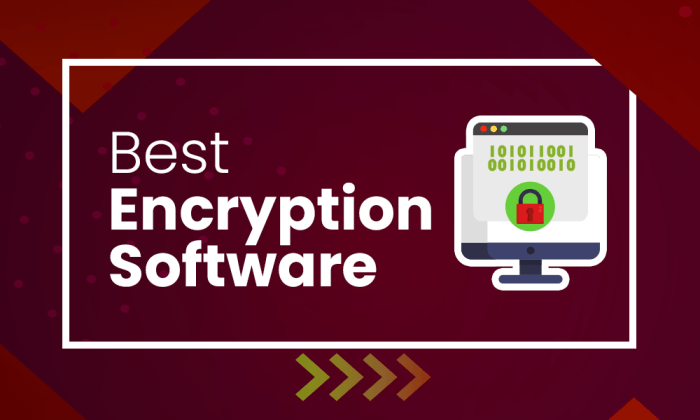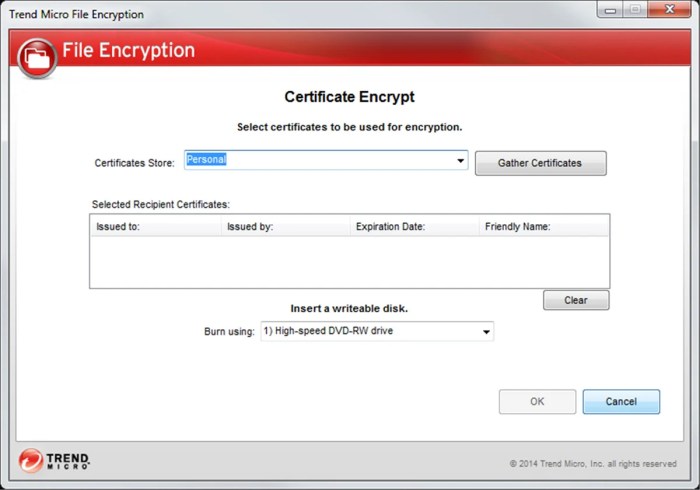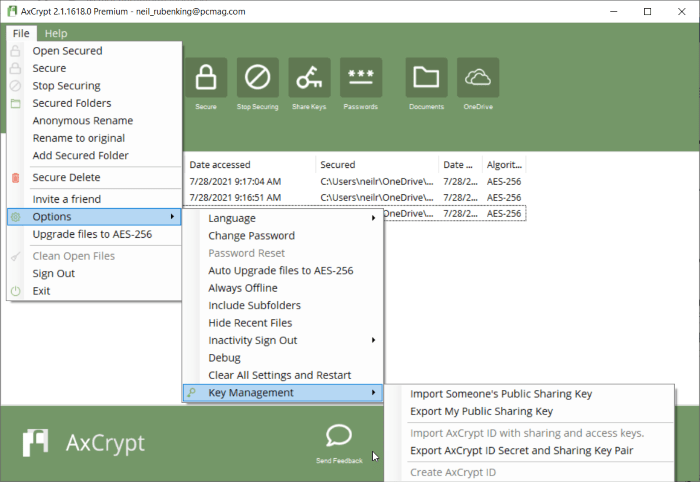Encryption software open source – In today’s digital landscape, data security is paramount. Protecting sensitive information from unauthorized access is crucial for individuals and organizations alike. Open-source encryption software offers a powerful and transparent solution, providing robust security with the added benefit of community scrutiny and collaboration. This comprehensive guide explores the world of open-source encryption software, detailing its functionalities, benefits, considerations, and popular options.
Understanding Encryption and its Importance
Encryption is the process of converting readable data (plaintext) into an unreadable format (ciphertext) using a cryptographic algorithm and a key. Only those possessing the correct decryption key can revert the ciphertext back to its original form. This protects data in transit (e.g., during online transactions) and at rest (e.g., stored on a hard drive). The strength of encryption relies heavily on the algorithm’s complexity and the key’s length and randomness.
Types of Encryption
- Symmetric Encryption: Uses the same key for both encryption and decryption. Examples include AES (Advanced Encryption Standard) and DES (Data Encryption Standard). Symmetric encryption is generally faster but requires secure key exchange.
- Asymmetric Encryption (Public-Key Cryptography): Employs two keys – a public key for encryption and a private key for decryption. RSA and ECC (Elliptic Curve Cryptography) are common examples. Asymmetric encryption is slower but simplifies key management.
- Hashing: A one-way function that transforms data into a fixed-size string (hash). It’s used for data integrity verification, not encryption, as it’s computationally infeasible to reverse the process. SHA-256 and SHA-3 are popular hashing algorithms.
Benefits of Open Source Encryption Software
Open-source encryption software offers several advantages over proprietary alternatives:
- Transparency and Auditability: The source code is publicly available, allowing independent security experts to review and audit the software for vulnerabilities. This enhances trust and reduces the risk of backdoors or hidden weaknesses.
- Community Support and Collaboration: A large community of developers contributes to the development and maintenance of open-source projects, leading to faster bug fixes, improved security, and ongoing innovation.
- Customization and Flexibility: Open-source software can be customized to meet specific needs and integrated with existing systems. This offers greater control and flexibility compared to proprietary solutions.
- Cost-Effectiveness: Open-source software is typically free to use, reducing the overall cost of data security.
- Increased Security through Peer Review: The open nature of the code allows for multiple eyes to examine the code, increasing the chances of finding and fixing vulnerabilities before they can be exploited.
Popular Open Source Encryption Software Options: Encryption Software Open Source
Several excellent open-source encryption software options cater to various needs:
Disk Encryption
- VeraCrypt: A free, open-source disk encryption software that builds upon the legacy of TrueCrypt. It offers full disk encryption, partition encryption, and creates encrypted containers. [ VeraCrypt Website ]
- LUKS (Linux Unified Key Setup): A standard for disk encryption in Linux systems. It’s integrated into many Linux distributions and provides robust security. [ LUKS Wikipedia Page ]
File and Folder Encryption, Encryption software open source
- 7-Zip: A popular file archiver that supports various compression and encryption algorithms, including AES-
256. [ 7-Zip Website ] - GPG (GNU Privacy Guard): A command-line tool for encrypting and signing emails and files using asymmetric cryptography. It’s widely used for secure communication and data protection. [ GPG Website ]
Messaging and Communication Encryption
- Signal: A secure messaging app that uses end-to-end encryption to protect conversations. While not entirely open-source, its protocol is open and audited. [ Signal Website ]
- WireGuard: A next-generation VPN technology that offers fast and secure connections. Its open-source nature makes it a popular choice for privacy-conscious users. [ WireGuard Website ]
Considerations When Choosing Open Source Encryption Software
While open-source encryption offers many advantages, several factors should be considered:

Source: cloudwards.net
- Algorithm Strength: Ensure the software uses strong and well-vetted encryption algorithms like AES-256 or RSA with sufficiently large key sizes.
- Key Management: Securely storing and managing encryption keys is crucial. Losing or compromising a key can render encrypted data inaccessible.
- Community Activity: Choose software with an active and responsive community to ensure ongoing support and security updates.
- Ease of Use: Consider the software’s user interface and ease of use, especially if you lack technical expertise.
- Integration with Existing Systems: Ensure compatibility with your operating system and other software.
Frequently Asked Questions (FAQ)
- Q: Is open-source encryption truly secure? A: The security of open-source encryption depends on the strength of the algorithms used, the implementation quality, and the user’s security practices. Regular updates and community scrutiny significantly enhance security.
- Q: How can I choose the right open-source encryption software? A: Consider your specific needs (disk encryption, file encryption, etc.), the strength of the algorithms used, the ease of use, and the activity of the development community.
- Q: What is the difference between symmetric and asymmetric encryption? A: Symmetric encryption uses the same key for encryption and decryption, while asymmetric encryption uses a pair of keys (public and private).
- Q: Is open-source encryption suitable for businesses? A: Yes, many businesses use open-source encryption solutions to protect their data. The transparency and auditability are significant advantages in enterprise environments.
- Q: How important is key management? A: Key management is crucial. Losing or compromising your encryption keys renders your data inaccessible. Implement robust key management practices, including strong passwords and secure storage.
Conclusion
Open-source encryption software provides a powerful and transparent way to protect your valuable data. By understanding the different types of encryption, choosing reputable software, and implementing sound security practices, you can significantly enhance your data security posture. Explore the options discussed above and choose the solution that best fits your needs and technical expertise.
Call to Action
Start protecting your data today! Download and explore the open-source encryption software options discussed in this guide. Remember, strong encryption is a crucial part of a comprehensive data security strategy.
Question Bank
What are the risks associated with using open-source encryption software?
While generally secure, open-source software can have undiscovered vulnerabilities. Careful selection of well-maintained and widely-used projects mitigates this risk. Regular updates are also essential.
How can I verify the authenticity of open-source encryption software?

Source: enterprisenetworkingplanet.com
Look for software hosted on reputable platforms like GitHub and check for a substantial community and active development history. Reviewing the codebase (if possible) and checking for independent security audits can further increase confidence.
Is open-source encryption software suitable for all users?
While accessible, open-source encryption requires a certain level of technical understanding for proper implementation and configuration. Users unfamiliar with cryptography may need to seek assistance or utilize user-friendly interfaces.

Source: itbusinessedge.com
How does open-source encryption compare to commercial solutions?
Open-source often offers comparable or even superior security at no cost. Commercial solutions may provide additional support and features, but can be more expensive and potentially less transparent.
